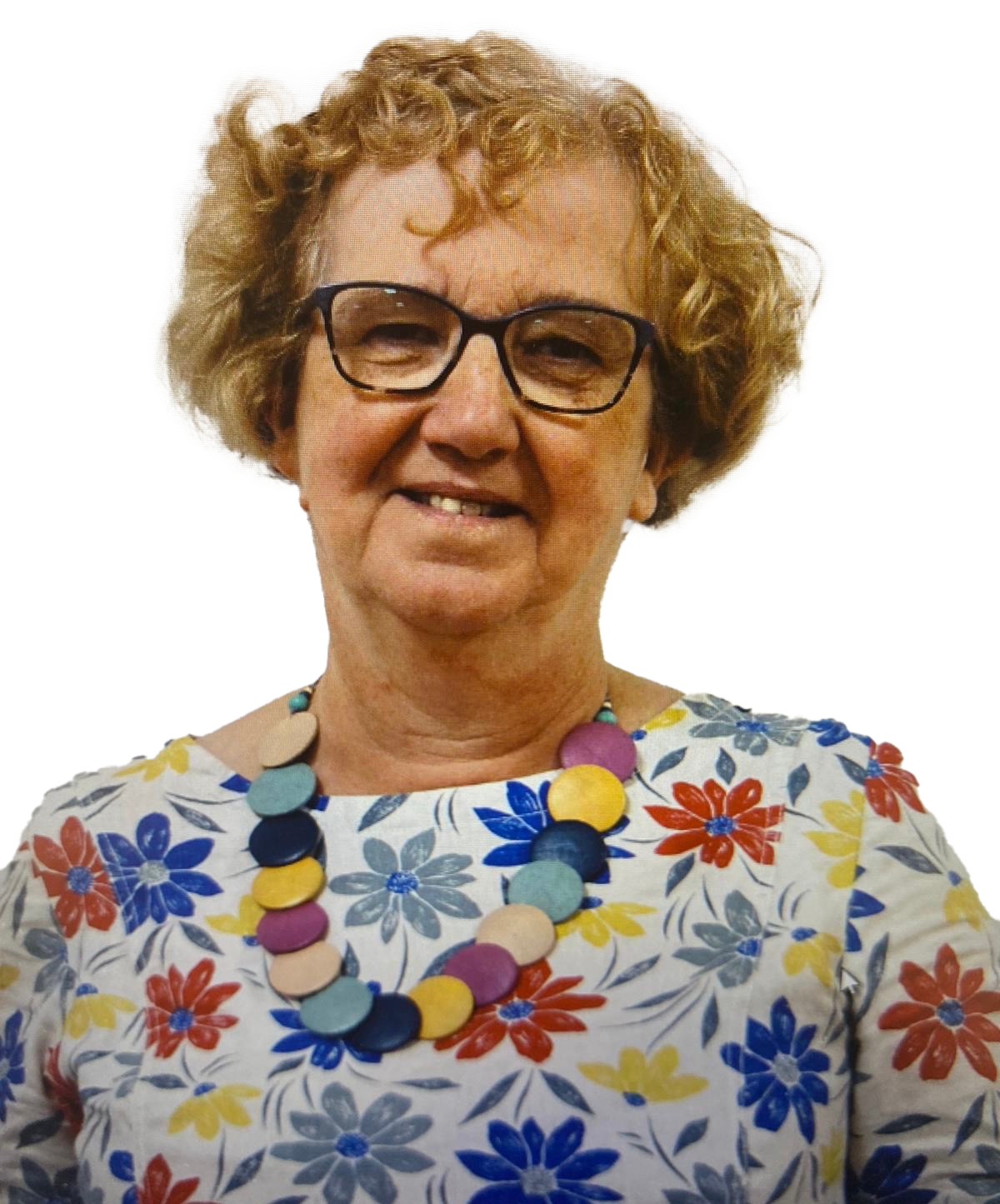- Font size / Language
- info@derbyshirecarers.co.uk
- 01773 833 833

We asked our Trustees 10 questions about their roles, motivations and impact.

What advice would you give to someone considering becoming a trustee, especially for a charity supporting unpaid Carers?
My best advice would be to try being a trustee!
I would encourage anyone to consider becoming a Trustee for a charity. Firstly, without Trustees any charity cannot function or exist, and our society would be significantly harmed without a functioning charitable sector. The second reason is a more selfish one - the benefits to me of being a Trustee for DCA have been very positive, in terms of keeping my brain active after retirement and giving me a good feeling because I am, indirectly, helping people often in difficult situations who need support. The final point is why I chose to offer my services to DCA - the support provided by our fantastic staff directly helps so many Carers, of all ages. As Trustees our role is to help and support our staff to ensure that they can continue the work they do.
Since becoming a trustee I have met some fantastic people, learnt a lot along the way and had the opportunity to contribute, albeit in a small way, to the work of DCA. A very rewarding way of spending a small amount of my time.
How does the board ensure that the charity remains sustainable and continues to support unpaid Carers effectively?
As trustees, we take an overview on the financial health of DCA. Whilst we have a fantastic Treasurer and Financial team, and also a highly competent Management team, I believe that this overview helps the operational staff. The need to justify their plans, in advance, to the Board of Trustees ensures that the Management team consider all actions carefully.
In addition, as trustees, we do constantly encourage the Senior Management team to think long term. I know very well from my experience that, as a busy Operational Manager, it is sometimes very difficult to see beyond next week, or the next challenge. To look further ahead is difficult and time-consuming, and I do hope the Trustees help and encourage our Management team to think strategically.

What inspired you to become a trustee at our charity?
Having worked in an external capacity with DCA for several years, I was aware of the brilliant work that the charity was doing, and their desire to continually improve and develop their activity and service to Carers. The leaders within the organisation and the staff are so passionate to do all they can to improve the lives of Carers and those they care for and it seemed a no-brainer to offer my skills and experience to the organisation more formally to support this agenda. Having been through a caring situation myself, I knew the support offered by DCA could be life-changing for people and I was keen to be part of that in any way I could. Being a Trustee enables me to give something back to the community, to the charity and enables my own employer to meet its own civic responsibilities to the locality by giving me some time to support my role with DCA, so it seems like a win-win!
What skills or experiences do you bring to the board, and how do they help further the charity’s mission?
I bring personal experience of caregiving, both for family members geographically close and those at a distance (which bring different challenges and concerns); this helps me to understand what the organisation is trying to achieve and informs how I input to board activity. Professionally I am a Health Psychologist and have a background (some years ago) of working within primary care and for much of my career, in teaching and research at the University of Derby. Using skills to be able to understand and assess need, inform effective assessment and evaluation of services have led to the establishment of a research subcommittee where we develop projects that help the organisation to ensure what they do is effective and making a difference. A recent example is developing projects that will help us to evolve the Carer assessment process to make it more accessible, effective and meaningful for Carers. I also support the organisation by running Carer wellbeing sessions, using some of my professional experience and expertise to support Carers directly.

What do you think are the biggest challenges facing unpaid Carers today, and how does DCA help address these?
Some of the challenges currently facing unpaid Carers are a direct result of the things making life difficult within the NHS and Social Care. The fact that there is increasing demand on these statutory services means that it is a lot harder to access the right help at the right time for those they care for and themselves. Many Carers are also struggling with their own health due to age and other issues, along with the added financial pressures that we have all felt over the recent past.
There is also an increasing move for people to remain at home for their care with the development of such things as virtual wards, this is good on one hand as keeps people away from the alien environment of hospital and potential of things like hospital acquired infections, but it does also mean that it may put greater strain on the Carers within the family.
For many Carers, getting some sort of respite from their caring role, which is good for them and suits the person they care for, is getting increasingly challenging. With a shift away from day services and traditional forms of respite, to the use of personal budgets. Again, this may suit some, but others can find it doesn’t work for them.
Many Carers also struggle to acknowledge the impact that caring for family member has on them, and may not want to seek help, until unfortunately things fall apart, and events overtake them. More families are now spread geographically so people find they are supporting people who may live considerable distances away, this results in very different Carer issues to those where the Carer is living with or close to the person.
Taking some of this into consideration it increases the need for DCA to offer appropriate support that is easily accessible in whatever way people feel comfortable with. It is not easy to reach everyone, but we need to be as visible as possible, not just to the Carers and their families but to other staff working across the Health and Social Care areas, and within as many community settings as possible.
Getting in touch also needs to be easy and although technology plays an important part, we need to make sure that we are still accessible in face-to-face settings as many of the most vulnerable Carers still struggle to access technology.
The other important thing is to demonstrate to both the public and staff working in the sector how we are making a difference to Carers lives, and the huge benefits of having that little bit of help and knowing that someone is by your side in any caring situation.
It can also demonstrate that Carer support is both cost effective for individuals and for the system.
How do you ensure the voices of unpaid Carers are heard at the board level?
It is especially important for the board not to forget what our core business is, and to make sure that Carers experiences are made known to the board.
Personally, I have been a Carer for several family members, which has given me insight into how difficult it can be to access information and to get people to use that help.
It is important for Board members to have the opportunity to get out and about to Carer events and groups so that we get to meet Carers from a variety of circumstances and backgrounds.
I worked for many years in the NHS and was very aware that people cope with caring in many differing ways – this is depending on their personal circumstances, their personality and experience, and often the previous relationship with the person they care for and the wider support networks they may have.
This is why we need to hear from as many diverse situations as possible as ‘one size does not fit all’ where caring is concerned. In the future, it may be useful for some of these stories to be presented to the board, to show what we did and how it impacted Carers and their families.
What do you think the future holds for unpaid Carers, and how is DCA preparing for these changes?
Many Carers must feel that the future is uncertain with all that is going on within the political and wider-world in relation to the Health and Social Care Services.
Obviously DCA cannot directly affect these big issues but hopefully we can work at a local level and within communities, to increase the support networks which are available to Carers.
It may also be important to help collect and collate the impact of our support on Carers, along with the impact on Carers of wider policy changes, this may involve us working more closely with National Carer Agencies and other organisations such as; Healthwatch.
One of the big challenges is not only making it easier to access help but making sure the Carer does not feel guilty about asking for help. So, peer support and opportunity for Carers to meet and share experiences is important.
The need for respite from caring remains a challenge for all Carers and their families and to us as an organisation, as the provision and development of respite is not easy and can be costly.
Hopefully, DCA can look how we can support people to get some respite from their caring role to suit their circumstances, by looking wider or collaborating with new partners.

What achievements are you most proud of during your time as a trustee?
I am relatively new to the role of Trustee but have over forty years of experience in health, safety and quality, both in the UK and abroad. I hope to be able to bring that expertise to DCA to improve the working environment of Carers, cared for and our own staff.
I would like to think that I have been able to contribute already to both the HR Sub Group meetings and the Trustee Board meetings.
The piece of work I am most proud of, and am currently working on, is the DCA risk management strategy and the associated risk assessments.
I am working to simplify them, make them more relevant to our work, and once completed and approved, will hopefully continue to improve the working environment for everyone involved with DCA.

What does being a trustee mean to you, and why is it important to support unpaid Carers?
I have been a DCA Trustee for the last 12 years and have served as the Chair of the Board since 2020. I have retired from paid employment but currently volunteer for several community groups and activities. My role as a Trustee at DCA is very important and satisfying to me, because it enables me to make use of knowledge and skills gained during a career, which spanned over 47 years. My commitment to addressing the support needs of family and friend Carers stems from my own family experiences in the 1990’s when my mother was struggling to cope at home with the care of my father. He had been severely disabled by a stroke, but no support services were available to my mother at that time. More recently, I faced my own struggles in caring for my husband who suffered from bowel cancer and suspected dementia. He died in 2022.
Caring for a loved one in 2024 has become increasingly more difficult for unpaid Carers, whose numbers include children and young people. Health and support services are diminishing as local authorities and the NHS struggle to meet demands amid increased pressures on limited budgets. Levels of stress are rising considerably and creating even more health problems amongst those who look after family members and friends. Thus, the role of a charity, such as Derbyshire Carers Association, is increasingly important in helping unpaid Carers to cope.
Why is Trustees' Week important to you, and how can people support the work of unpaid Carers and DCA during this time?
Trustees Week is an opportunity to highlight the role of Trustees and to hopefully encourage more people to consider this type of volunteering. At Derbyshire Carers Association, we want to encourage people with real life experience and/or knowledge of diverse communities to consider applying for a Trustee role. We have also recently introduced a new role of Associate Trustee to enable volunteers to help our work in supporting family and friend Carers by considering a role that is less time-consuming and less demanding than that of a full member of the Board. The new role is suitable for anyone interested in using their knowledge and experiences to help our charity improve and expand our services to Carers. Some new Associate Trustees may also wish to use the role as a first step towards eventually becoming a full Trustee and Director of our charity.

Are you interested in helping us to make a difference to the lives of Carers?